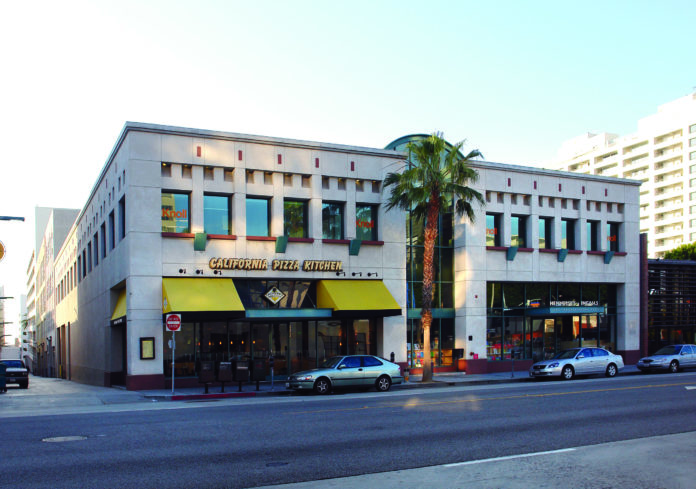If all goes as planned, California Pizza Kitchen Inc. should emerge from bankruptcy by Halloween.
The Playa Vista-based fast-casual restaurant chain filed for Chapter 11 protection on July 29 in the U.S. Bankruptcy Court for the Southern District of Texas.
It also entered into a restructuring support agreement with its senior lenders — a deal that will equitize and reduce most of its long-term debt, from approximately $403 million to $174 million and include $46.8 million in new financing to support ongoing operations.
“This proactive filing will allow us the ability to reduce our long-term debt load and emerge as a much stronger company,” Chief Executive Jim Hyatt said in a statement. “We anticipate a short stay in Chapter 11 and expect to progress on an expedited timeline — our goal is to complete the Chapter 11 process in under three months.”
CPK, which had approximately 15,000 employees prior to the pandemic, cited several factors that contributed to its decision to file for bankruptcy protection, including the government-mandated closure of indoor dining, which represents about 78% of its net sales.
The restaurant chain also contended with liquidity issues and was actively looking for a buyer. The management team hosted several “fireside chats” with interested parties and received four written indications of interest.
But the Covid-19 pandemic “severely interrupted the marketing process,” Hyatt wrote in a document submitted to the court.
CPK, founded in 1985, owns and operates 181 locations in 29 states and has 36 franchised restaurants at airports in seven countries. PepsiCo Inc. bought a controlling interest in CPK in 1992 and five years later sold it to Buckmann Rosser Sherrill & Co., a New York-based private equity firm
In 2000, CPK went public and traded on NASDAQ. San Francisco-based Golden Gate Capital acquired the company in 2011 and has an 89% stake in the company while current and former members of the management team hold the remainder.
While the major portion of CPK’s revenue comes from its restaurants, the company also offers takeout and delivery and has a licensing agreement with Nestlé to distribute its pizzas to some 20,000 supermarkets and wholesale clubs.
Hyatt said the management team “pursued a strategy to make CPK more efficient, customer-driven, and flexible to remain competitive in a crowded restaurant industry.” Efforts included reducing corporate management payroll by more than 35%; relying more on its takeout and delivery-based services; and launching CPK Market, which are meal kits with ingredients necessary to make multiple servings of certain CPK signature entrees, sides and desserts.
In early March, the management team closed 46 restaurants “where it was not feasible to remain open as off-premises-only,” according to Hyatt.
CPK also stopped paying rent and renegotiated some of its leases. Its net sales have partially recovered since the onset of the pandemic but were still more than 40% below 2019 levels as of the last week of June.
“For many restaurants, the Covid-19 pandemic will be the greatest challenge they will ever face; for some, it may also be their last,” Hyatt wrote. “Though some states are beginning to allow indoor dining to recommence, and many have plans to do so in the near future, the restaurant industry faces a new reality, which includes the need to be able to adapt quickly to shifting regulations state by state and to endure an unpredictable volume of customers. The viability of each restaurant or chain will depend on its ability to adapt and quickly pivot its operations as the world changes.”
CPK is one of a half-dozen local companies that have filed for bankruptcy protection recently, including Westchester-based media and satellite Wi-Fi company Global Eagle Entertainment Inc.; downtown-headquartered Lucky Brand Dungarees; and True Religion Apparel Inc., the Manhattan Beach-based retailer that’s expected to reemerge from bankruptcy this month.
Nationwide, total commercial Chapter 11 filings in July 2020 increased 52% from the previous year, according to data provided by Epiq, a Kansas City, Kan.-based legal services company.
“As the government considers renewing or bolstering lifelines to help stabilize the economy, the financial uncertainty due to the Covid-19 pandemic is weighing on families and businesses,” American Bankruptcy Institute’s Executive Director Amy Quackenboss said in a statement. “We anticipate filings increasing in the next few months as more households and companies seek the shelter of bankruptcy amid intensifying financial distress.”

